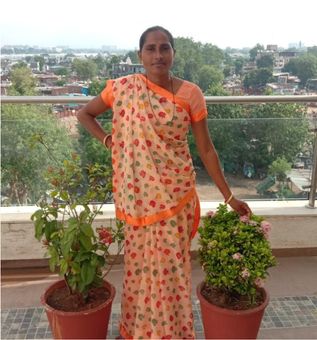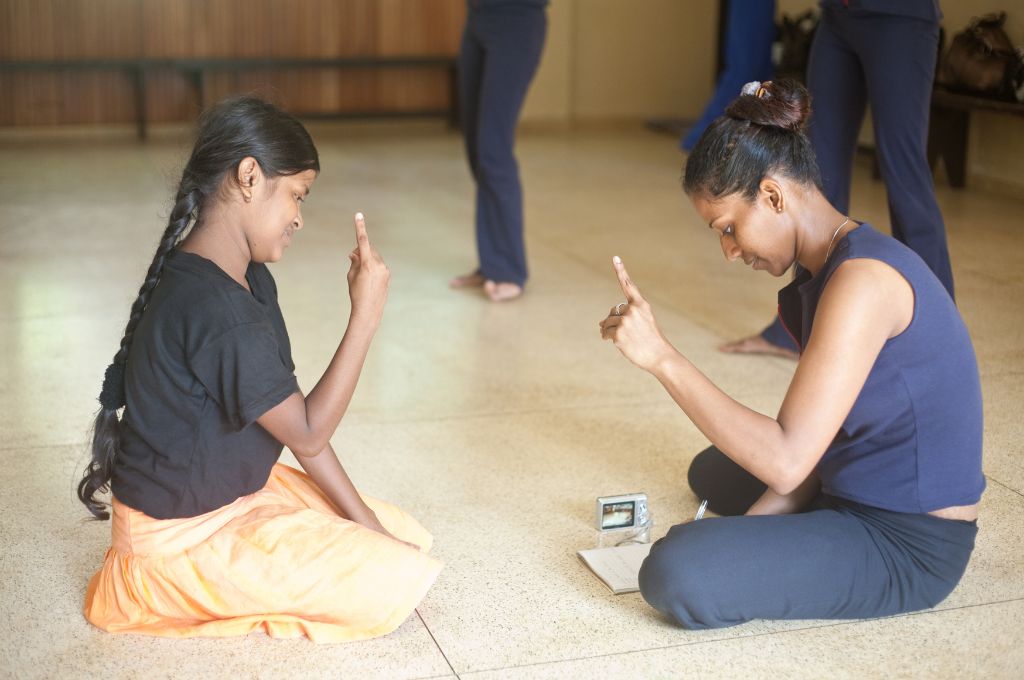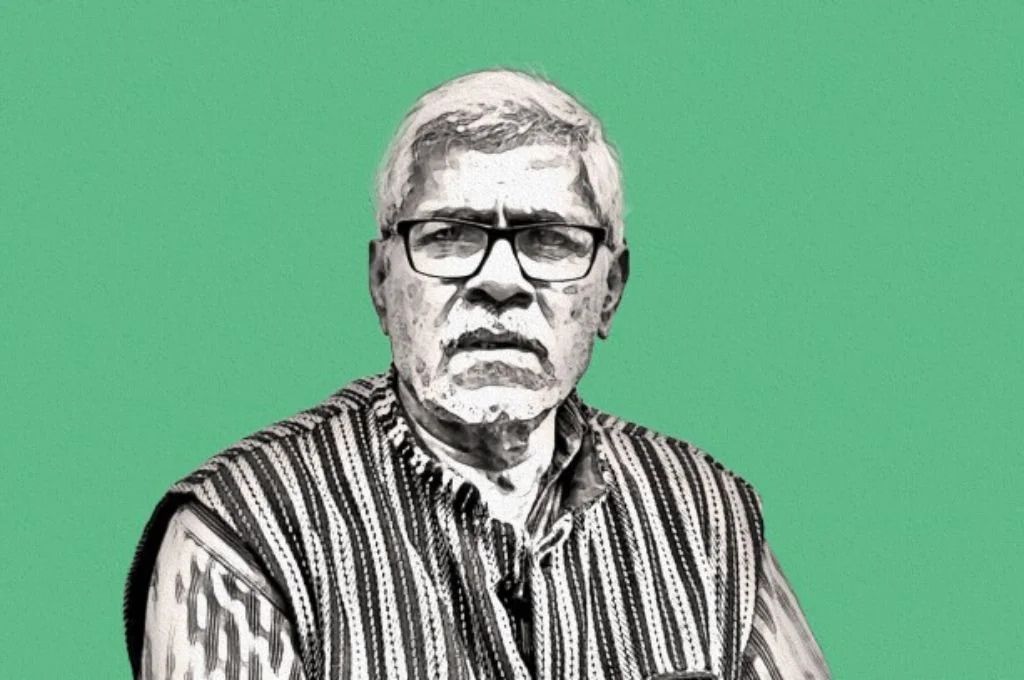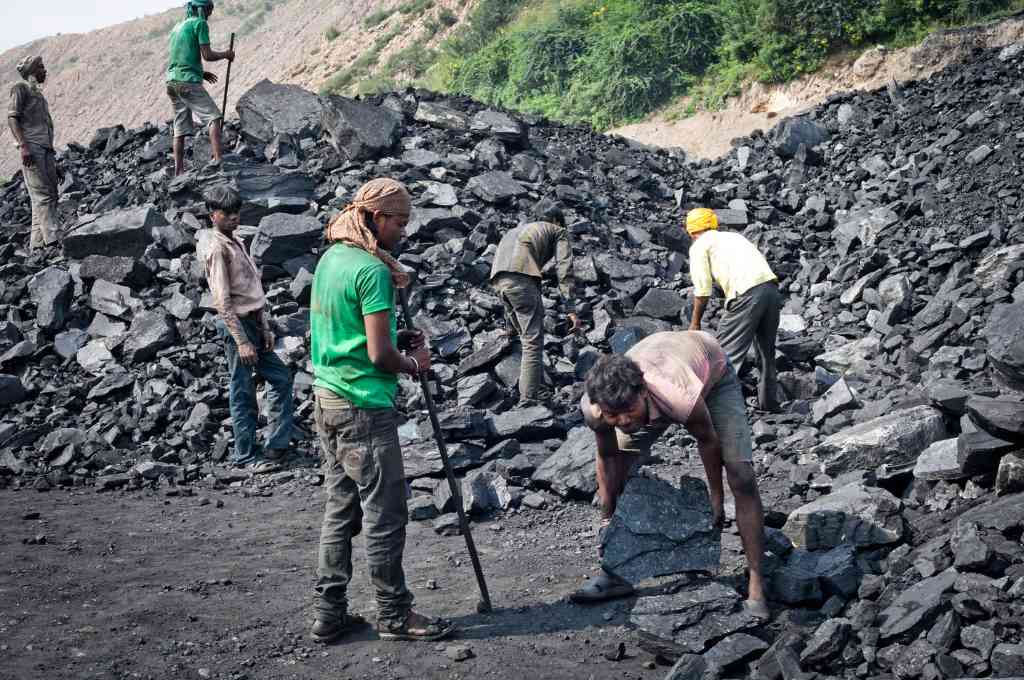My name is Atiben Varsat, and I’m from Pahadiya (Panchal), a village in Meghraj block of Gujarat’s Aravalli district. Since 2016, I have been a paralegal worker with the Working Group for Women and Land Ownership (WGWLO) to support women on issues related to land ownership, such as getting their names registered on land records.
Nearly 13 years ago, I started working with the Human Development and Research Centre (HDRC) on projects related to education for children, particularly girls. When I found out that they needed individuals to work on the issue of women’s land rights, I signed up immediately.
Having witnessed the struggles to acquire land records for my grandmother after the death of my grandfather, I chose to focus on working with widowed women. I’ve seen how widows are especially disadvantaged in our society as they often have no recourse or documents to indicate that a particular piece of land is rightfully theirs. Having rights over land provides widowed women the resources to feed and educate their children, as well as access to various government benefits. And so, much of my work falls under the ambit of the Hindu Succession Act, 1956, which allows women the right to inherit property.
As part of my training, I learnt how to read land records, what the law states, what activities need to be conducted on the ground, and why land records are important. It was during this time that I realised that although a job can provide financial security to women for a period of time, owning land, regardless of how small a piece, can help permanently secure their future, as well as their family’s.
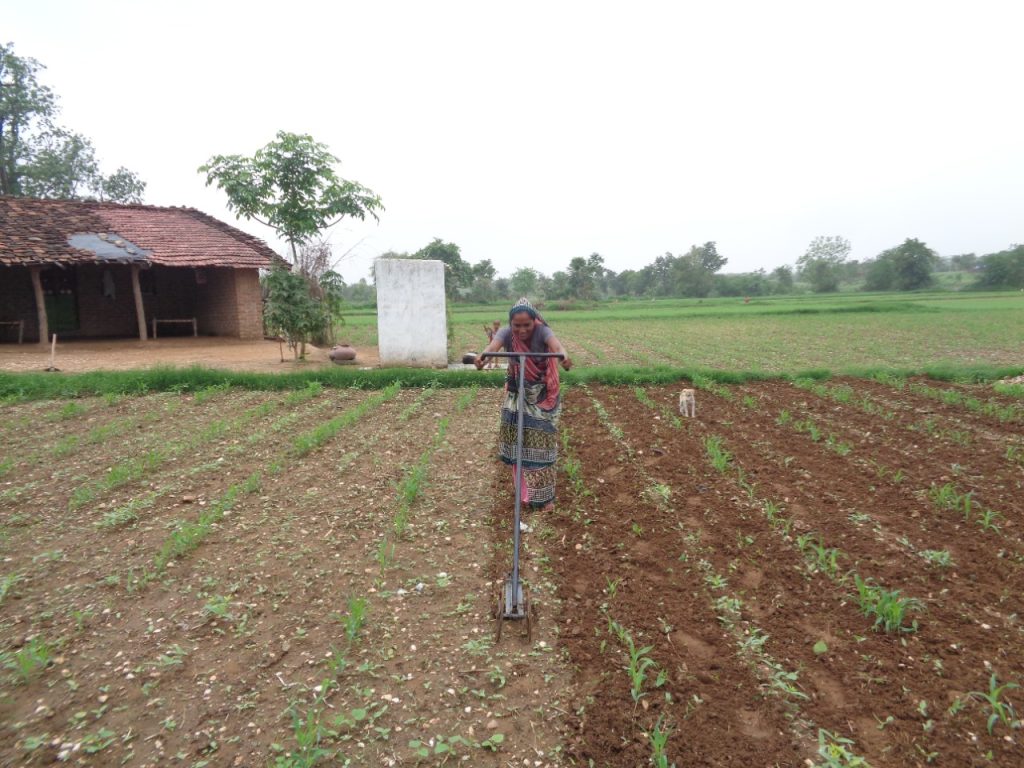
4.30 AM: I wake up early to milk the livestock, feed them, and clean their sheds. Then I move on to household chores such as cleaning and preparing tea and breakfast. My children have to leave for school, so I prepare their lunch boxes and send them off before proceeding to more chores such as laundry, dishwashing, and preparing lunch for the remaining family members.
In a way, my understanding of the work around land rights started at home. When I would go to the field to work with women or conduct jagruti (awareness) meetings, women would ask me, “You’re telling us about the importance of land ownership, but is your name there in any land record?” That is when I got my name added to my father’s land records and started the process with my in-laws. My in-laws have had several disputes over land, which were compounded by the missing death certificates of a few relatives. And so, for now, we’re working on partitioning the land between my father-in-law and his children, before adding other names to the records.
It helped me to lead by example. Now when I go for fieldwork, I am more confident in informing the women about their rights. I leave my phone number with them so that they can contact me or visit me at the Swa Bhoomi Kendra, a space within the block office run by paralegal workers where we help women resolve their problems related to land ownership and find ways to advocate for their rights.
12.00 PM: I leave the house to go wherever my work dictates—it can be the Swa Bhoomi Kendra, the panchayat office, or the field. Since I do not have a vehicle of my own and public transport is inconsistent, it takes me at least one and a half to two hours to reach a particular location. Some villages I visit are in the 10–15 km radius, others are in 20–25 km radius; the panchayat and talati (revenue officer) offices are 30–40 km away. I travel at least 30–40 km a day, often changing buses and switching autorickshaws several times.
My schedule depends on the kind of work I have on that day. The initial hours in the office are spent following up on documents. Women often visit me and tell me about the problems they are facing. I inform them about the various documents, such as land papers, satbara utara (7/12 extract), and their husband’s death certificate that they need to secure their land rights. Without a death certificate, a widow cannot assert her rights over family land. I check if the panchayat has the death certificates of these women’s husbands. In case a certificate isn’t available, I have to find out all kinds of details—the person’s age at the time of death, the year of death, and the cause of death. This information is used to acquire a document from the panchayat, which is then taken to the district office. Two months later a death certificate is procured. Once the certificate is received, further steps can be taken to secure the women’s right to their land.
If the death certificate is available, the process of getting documents such as satbara utara is comparatively easier. The Gujarat government has a website called AnyRoR, which paralegal workers such as me have been trained to navigate. So, we know how to acquire the satbara from that website, and the copy is considered valid. But this is just one document; obtaining the rest still takes a lot of time. Once all the documents are in place, it takes 70–90 days to complete the application process for land ownership according to the law.
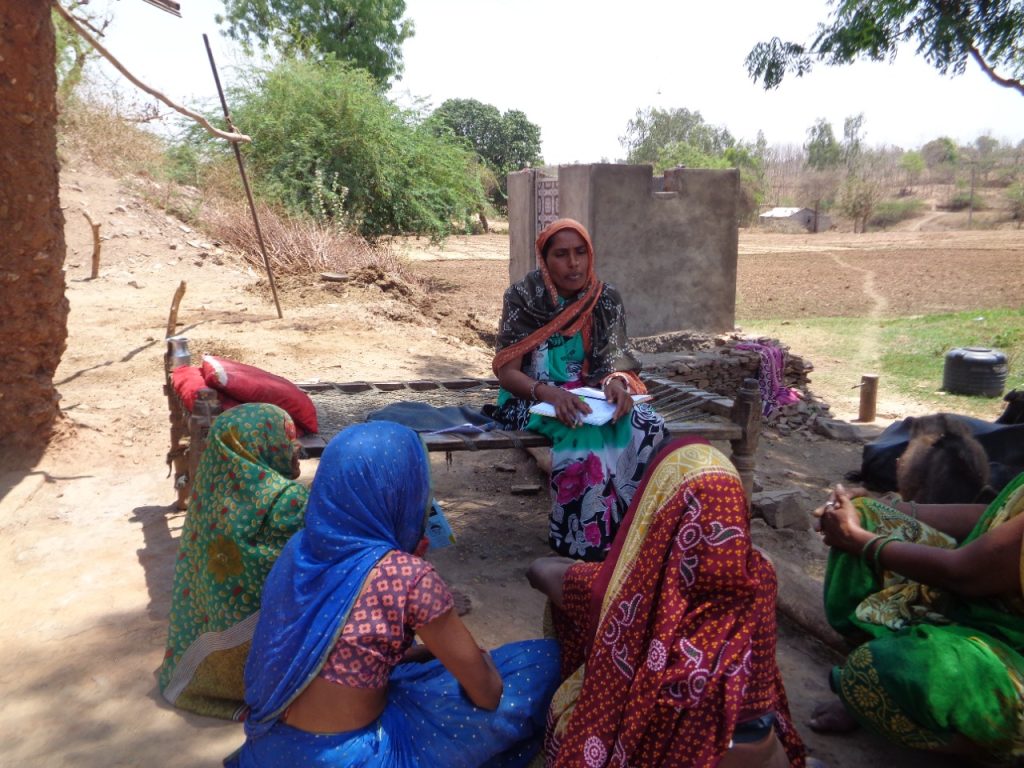
3:00 PM: One of the major roadblocks we face while working on land rights for widows is people’s perception. Just today, when I met a government officer to get some documents for the women I’m working with, he told me that widows should just remarry rather than seek any legal recourse for land ownership. Among the in-laws of widows, the worry is that if the widow remarries, the second husband will also have a right over the land. They also fear that if a widow gets access to land, she will run away or stop doing household work. As a result of these fears, the in-laws often send a widowed woman back to her parents’ house. And so it’s also an important part of my job to placate the in-laws and help them see reason.
My usual approach is to speak with the in-laws to understand who among them is closest to the widow. I try to explain to them why widowed women need land rights. I assure them that even if she were to run away, she cannot possibly take the land with her, so there is nothing to worry about. Once the in-laws are convinced, they collectively approach the elders of the house—who are typically reluctant to help the widow—to make a stronger case. If the elders still refuse, then the leaders of the village such as the sarpanch are approached and asked to intervene with the family on behalf of the widow.
Some of this hassle can be prevented if women get their names added to the land records while their husbands and fathers are still alive. We make women aware of the benefits of doing that. Here, when a woman is widowed, social norms dictate that she must remain home for a month. This delay coupled with ignorance about the relevance of death certificates makes their life difficult later. If they do ultimately try to get a death certificate issued, they incur several costs, including notary charges, and must wait a long time to receive the paperwork. All this trouble is avoidable.
4.30 PM: Today is a Thursday, when the talati is mandated to sit at the block-level offices, so I call up the office to check if he is in. The office clerk tells me that he has just arrived, and I let him know that I’m sending some women their way. I then brief the women about what documents to carry and to communicate that they have come from the Swa Bhoomi Kendra. Clear communication is necessary because the talati looks after five villages in the Meghraj block and has limited time. He plays an important role in the land ownership process. He is responsible for monitoring and maintaining 18 different documents, such as records of births and deaths in the village, and also has the power to verify documents.
While things have improved since I first started working, in general, government officers continue to be difficult to work with.
These days I only accompany the most vulnerable women on their visit, because paralegal workers from the kendra have cultivated a relationship with the talati office. This saves us time and allows us to help more people in a day.
While things have improved since I first started working, in general, government officers continue to be difficult to work with. They often delay the process saying “we don’t have the form today, so come next week” or “we don’t have the stamp today, so come later”. This prolongs the process of getting land ownership for the women.
9.00 PM: Although I return home around 6 pm, it isn’t until much later that I have some time to myself. By the time I am home, the kids have returned from school and need to be given food. I talk to them while doing housework, preparing tea and dinner. By now it is 9 pm—time to tend to the cattle, in which my family members help me. When my husband was alive, I used to dedicate a lot of my time to farming; now I only do it on the days that I don’t have to go to office. I chat with my sister-in-law while looking after the cattle.
My relationship with my in-laws has come a long way. When I initially started going to office, they had all kinds of fears. When I would travel to Ahmedabad and other places for training workshops, they would say, “We don’t know what kind of work she does that makes her leave the house so much.” But this changed once I started to work within the family itself. For instance, the first thing I did was to get my husband’s grandmother’s name added to the land records. That itself was hard to accomplish as the family members were refusing to sign any documents. So, I called all the members home and had multiple meetings with them where I convinced them to get the work done by explaining its benefits. This helped them realise that what I was doing was important. With the worth of my work proven, people in the neighbourhood also became interested. Even as I go to bed around 11 pm, I am making mental notes of whom I need to help the next day, whom I need to follow up with, and so on. Now even if someone wakes me up in the middle of the night with a query, I’m confident that I can provide them with the correct guidance.
As told to IDR.
—
Know more
- Learn how a paralegal is challenging patriarchal gender norms across 200 villages in Kutch.
- Read how men control even women-owned land in Gujarat.
- Understand how paralegal workers help women access land rights.


